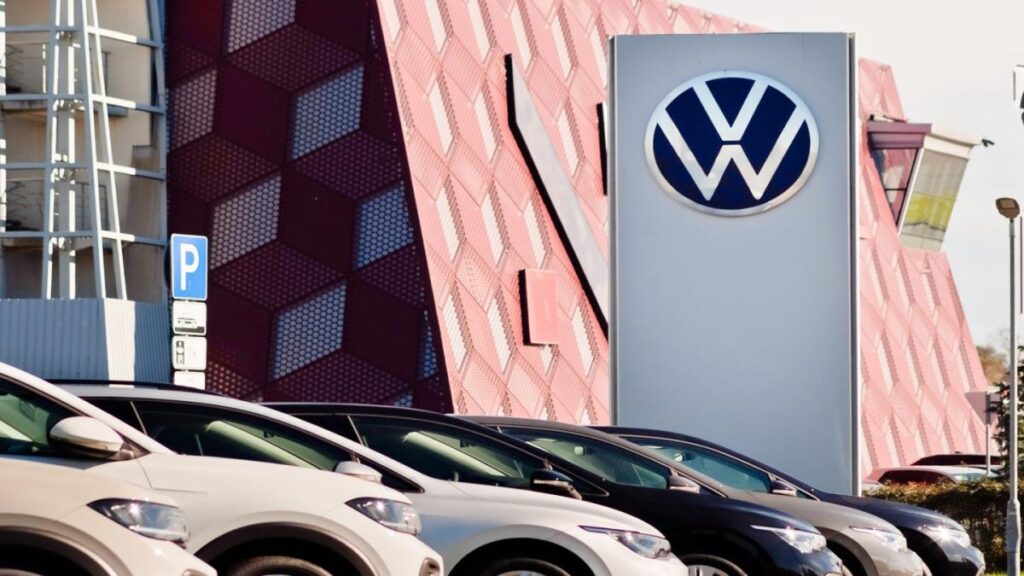Volkswagen employees across Germany are currently engaged in warning strikes, responding to concerns about potential mass layoffs, wage reductions, and plant closures. This industrial action is orchestrated by the labour union IG Metall and marks the first significant walkouts at Volkswagen’s domestic facilities since 2018. These recent strikes highlight a growing tension between the automotive company and its workforce, as employees push back against management’s proposed changes to labor conditions. On November 22, labor representatives voted to initiate limited strikes to commence in early December after negotiations around wages and plant closures had failed. The union’s negotiator, Thorsten Groeger, emphasized the seriousness of the situation, warning that this may evolve into one of the most challenging collective bargaining battles in Volkswagen’s history.
Volkswagen has acknowledged the employees’ right to engage in these warning strikes, with company representatives declaring their intent to mitigate the impact on customer supply during this period. Historically, these warning strikes tend to last only a few hours, providing a platform for employees to express their grievances without leading to prolonged disruptions. Prior to this escalation of conflict, IG Metall had presented cost-saving proposals aimed at preserving approximately €1.5 billion, which included the elimination of bonuses for the years 2025 and 2026. However, Volkswagen management rejected these suggested measures, opting instead to propose a controversial 10% wage reduction, which they argue is necessary to cut costs and improve profitability in response to competitive pressures from the Chinese market and a slump in vehicle demand within Europe.
The current situation has become particularly dire, as for the first time in its 87-year operations, Volkswagen is entertaining the possibility of closing its plants in Germany. Groeger has strongly criticized management’s approach, accusing them of undermining established collective agreements. His assertion suggests a deepening rift between labor and management, with the implications of these contractual breaches resonating throughout the workforce. As this conflict escalates, labor representatives have made it clear that they will resist any proposals that lack a sustainable plan for the future of every Volkswagen plant. The stakes are high, as the outcome of this confrontation could have lasting impacts on employees’ job security and the overall labor structure within the company.
The urgency of the negotiations was further underscored by the scheduling of another meeting between unions and management set for December 9. This upcoming dialogue is critical, as both parties aim to forge a new labor agreement amidst these tumultuous conditions. The outcome of these discussions could determine the future trajectory of labor relations at Volkswagen, particularly in light of the growing dissatisfaction among workers. Union leadership remains resolute in their commitment to defend the interests of employees while striving for a plan that guarantees the viability of the company’s operations moving forward.
As the warning strikes unfold, they serve as a stark reminder of the challenges faced by traditional automotive manufacturers in an evolving market landscape. The tension between workforce rights and corporate interests highlights broader economic trends and the pressure companies face in maintaining profitability while ensuring employee welfare. Volkswagen’s situation exemplifies the delicate balance between business imperatives and labor rights, where the potential for workforce disruptions is compounded by external factors such as shifts in global demand and increasing competition from non-European manufacturers.
In conclusion, the current state of affairs at Volkswagen is indicative of a critical moment in labor relations within the automotive sector. The warning strikes initiated by IG Metall reflect deeper issues surrounding job security and economic stability, poised against the backdrop of a rapidly changing industry. With negotiations resuming soon, the focus will be on finding common ground that respects the rights of workers while addressing the operational challenges faced by the company. The outcome of these negotiations will not only impact Volkswagen’s immediate labor relations but may also set precedents for how similar conflicts are resolved within the industry in the future.

